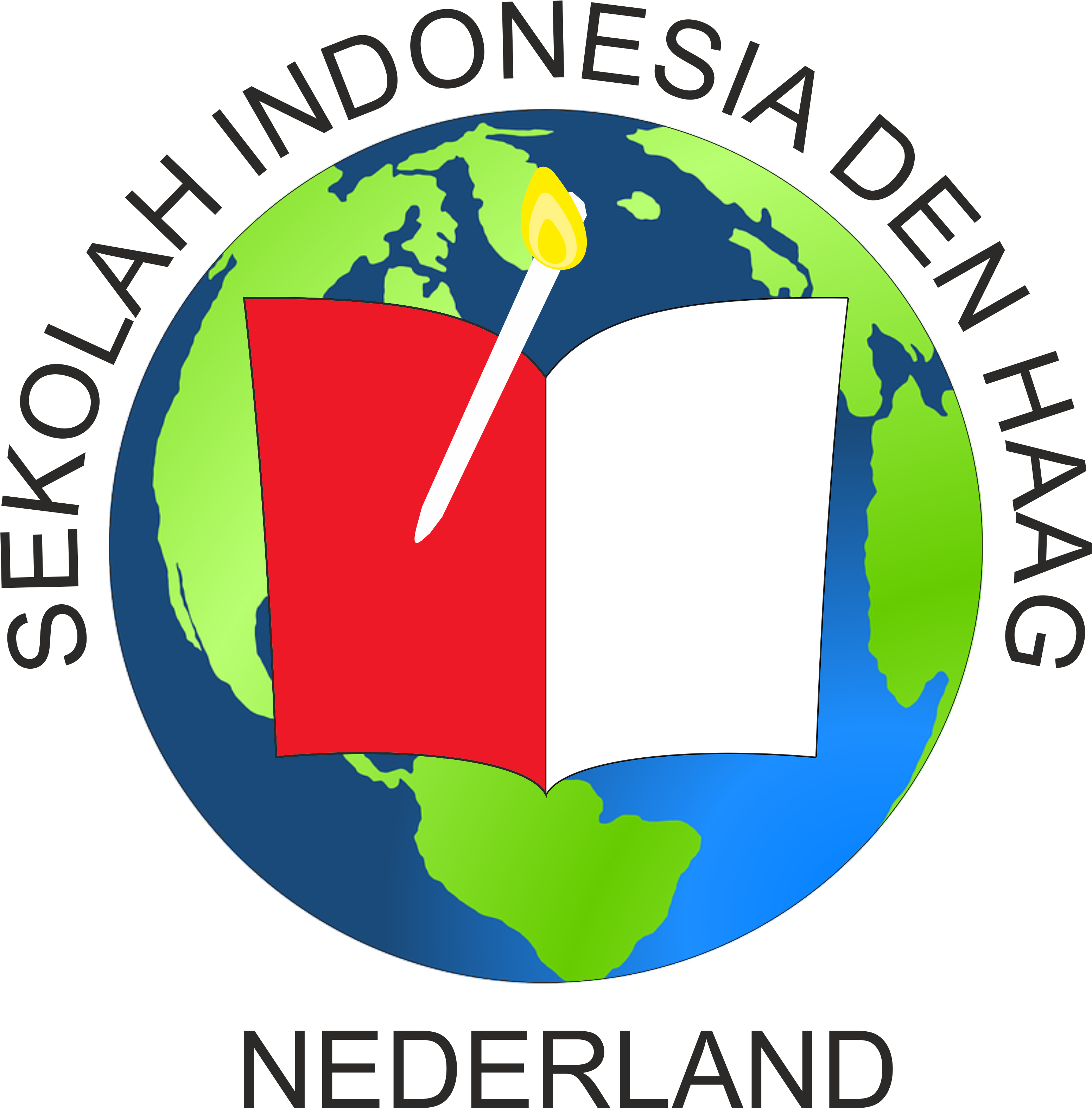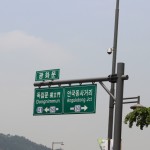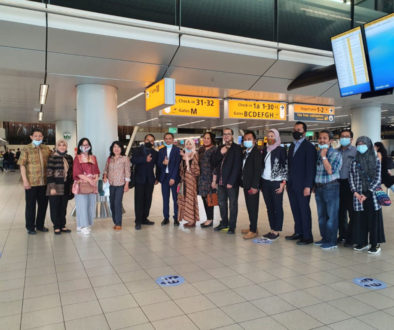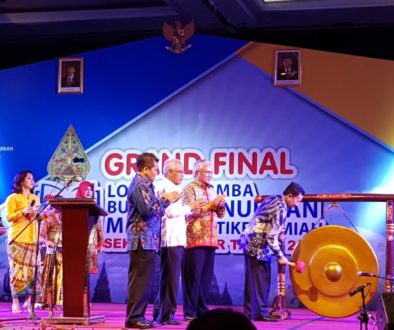SOUTH KOREAN EDUCATION AT THE CROSSROAD
Koreans (in this article referring to the people of the Republic of Korea or South Korea) are highly literate and educated society, historically and culturally thanks to the Confucianism which is deeply rooted in the country. The Confucian principles don’t only influence—in some cases reinterpreted to fit modernity—many aspects of being Koreans, but it has shaped the cultural, sociological and administrative fabrics of the country including education.
Schooling at senior high school is not compulsory; however, in 2011, roughly 81% of Koreans aged 25-64 completed this level of education (OECD, 2013). However, it is at this stage of education especially in the final year the bottleneck grip intensifies, due to the extremely competitive entrance test to secure a seat at the upper-ranking universities. Despite that, in 2010 about 75% of Korea’s total population aged 25-34 accomplished their tertiary education. It is the highest percentage in the OECD member states.
The outsized percentage of Koreans who completed their tertiary education can be explained by the significance of higher education in the society. For those who aspired to become high-flyers, they have to get into universities; not to any but to the 3 most prestigious ones specifically Seoul National University, Korea University, and Yonsei University (generally known as the SKY universities). P. Jamboor (2010) revealed that about 80% judges and prosecutors appointed locally and around 61% of top government officials are graduates of those elite universities. To name a few, Ban Ki-moon, the current United Nations Secretary-General, and Kim Young-sam, Republic of Korea’s 7th president are graduates of Seoul National University; while Lee Myung-bak, the 10th president graduated from Korea University; and Kim Hak-su, the United Nations Under Secretary-General is an alumnus of Yonsei University.
From the elaboration above it is reliable to conclude that to which university you can afford to go into would decide your future position in the Korean society. And the whole education stages that the students followed from nursery all the way up to tertiary levels seemed to dictate their destiny.
Korea recognises that it cannot depend solely on its limited natural resources to flourish as a nation. As part of the acknowledgment it focuses more on human resources development by sizeable investment on its people through education. How profound Korea revering the importance of education to boost its human capitals is indicated by the magnitude of public spending in the sector. In 2010, 7.63% of its GDP was earmarked for all levels of education; the third highest allocation among the OECD countries, right after Denmark and Iceland (OECD, 2013).
Prices for best achieving
In international standard, what Korea had achieved in education has been truly outstanding mostly in primary and secondary education. The scoreboard of PISA 2012 put Korea to the upper-class. PISA was a formidable comparative international measurement to assess the competencies of 15-year-old pupils in mathematics, reading, and science (with a focus on mathematics) in 65 countries and economies. In mathematics Korean pupils achieved 554 (out of 600, 4th best after China, Singapore, Taiwan and Singapore; while Indonesia was at the 63th place); in reading they attained 536 (4th best after China, Singapore and Japan; Indonesian pupils scored 396); and in science they scored 538 (6th best after China, Singapore, Japan, Finland, and Estonia; Indonesia students scored 382).
Nevertheless, in relative point of view, the success of Korean students had to be simultaneously compensated with soaring prices. Despite it may not be conclusive, among the prices, first, is less time for the kids and teenagers to do outside studying. It may shrink doubly during the final years of senior high school. It is probably a normal daily routine for a Korean teenage to be at school at 08:00, returns home at 16:00, and then heads to private crammer (hagwon) for university entrance exams preparation at 18:00, returns back home at 23:00, goes to bed 02:00, wakes up again at 06:30. One will possibly think that it may be stimulated by the commonly known saying in Korea that ‘If you sleep three hours a day, you may get into a top SKY university; …; if you sleep five or more hours each day, especially in your final year of high school, forget getting into any university.’ All at once, going to high ranking universities is like to assure one’s future and partly for prestige.
The second outlay is the difficulty to strike a balance between achievement and happiness. Among the OECD member states, Korean students at primary and secondary schools were unhappiest. Korea and most of the best achieving countries have in fact, to varying degrees, roots in Confucianism. Among the principles of Confucianism was to help humankind to live a good life, and it didn’t reject the idea of having enjoyable moments in one’s life. At this point the material phenomenon seemed to contradict the cultural fabric. This interesting issue deserves further examination; however, this article would come short to provide a succinct answer.
Third, there has been prevalent ‘elitism’ in the sphere of education and graduates. The hierarchical sentiment of diverse alumni of upper-class universities toward those who were unlucky enough to enter and graduates from SKY institutions or not getting to the tertiary education at all was pungent. Academic credential is really important; moreover, if someone obtained it from the SKYs. This culture engraved systematically in the society which may hinder vertical mobility and widen socioeconomic discrepancy; the universal gate to climb up in social status is getting into universities, in particular the prestigious ones.
The fourth effect is there has been skyrocketing rate of suicide especially among Korean teenagers. A combination of limited period to live their life normally as teenagers and culturally high demand for someone to succeed has led to delicate psychological strains. Many depressive teenagers chose committing suicide as an exit. In 2011 the suicide rate in Korea was 31.7 per 100.000, and it helped creating a trend that the primary cause of youth death in Korean is suicide (S. Mundy, 7 October 2013).
The last sacrifice is the increasing parents’ financial burden; they have to pay the tuition fees for the formal education of their children and at the same time to the hagwons. The Samsung Economic Research Institute estimates that a lion share (70%) of household income went to the private crammers (Y. Sharma, 22 October 2013). The burden may swell after the students enter universities because the allocation of public spending for tertiary education in Korea is one of the least in OECD countries.
Reflecting the imbalanced of education achievements and high compensating prices men might consider there is a sort of urgency for Korea to find a middle-way. This would be delicate choice; is there any option to maintain high achievement and to meet sociological demand to deliver without sacrificing the non-academic aspects of the society? Isn’t it necessary for Korea contemporarily to stay focus more on achievement to sustain its economic momentous growth and material prosperity? Isn’t it the status quo has helped to create the context for the ‘hallyu’ to blossom globally which is strategically benign for the country? And at this moment Korea is standing at the crossroad.




